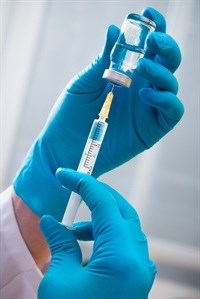
"While most people clear the virus naturally, others are not able to," says Dr Trudy Smith, Johannesburg-based gynaecologist and obstetrician. "HPV is a particularly strong virus that can cause infections that lead to cancer in both men and women. There are often no symptoms of HPV infection and it can lie undetected for years. In that time, the infected person can pass it unknowingly onto others.
Many forms of genital contact easily spread the virus - sexual intercourse does not need to take place. Research shows that individuals aged 15 to 24 years are at highest risk for genital HPV infection.
There is little awareness that boys and men can also be infected with and transmit HPV. In recent studies conducted in men, the prevalence of genital HPV infection appears to be at least as high as that among women. Genital warts are the best-known HPV-related disease in boys and men, however HPV has also been linked to anal, and penile cancers in men.
Although screening programmes for HPV in boys and men are lacking, pap smears may detect certain cancer-causing strains of HPV in women," says Professor Hennie Botha, head of Gynaecological Oncology at the University of Stellenbosch.
In women, HPV causes most cases of cervical cancer - the number 1 ranked cancer in women aged 15 to 44 in Southern Africa and one of the leading causes of female cancer-related deaths in South Africa.
Botha says HPV can be a silent killer, because those with the infection often only seek help when a resultant cancer is at an advanced stage. "Many women are diagnosed with cervical cancer in their mid to late thirties. Many of these women were most likely exposed to cervical cancer-causing HPV types during their teens and twenties."
"The most exciting development in the prevention of these diseases is the availability of HPV vaccines, which help the body's immune system learn how to protect itself against HPV infection," adds Botha. "These vaccines mean it is now possible to prevent some of the nastiest cancers around."
There is currently no one HPV vaccine that protects against all of the subtypes. There are currently two HPV vaccines in the market. One vaccine covers two HPV subtypes (subtypes 16 and 18), protecting against cervical cancer and related lesions. The other vaccine covers four HPV subtypes (HPV 6, 11, 16 and 18) which protect against cervical cancer and related lesions and genital warts in both males and females. HPV subtypes 16 and 18 cause 70% of cervical cancers and HPV subtypes 6 and 11 cause 90% of genital warts.
"A multi-strain vaccine is highly effective in preventing HPV-related cervical cancers and genital warts."
Research shows that individuals aged 15 to 24 years are at highest risk for genital HPV infection.
"The best time to vaccinate both male and female children is between the ages of nine and 13 years, because the younger someone is, the better their body's ability to mount an immune response against HPV," continues Botha.
The best protective results for vaccination are also seen in those who have not yet had contact with the virus.
"Remember that a vaccination is not a treatment for an existing disease, such as cancer or genital warts, but can help prevent these conditions," continues Smith.
Professor Botha hopes that if enough people in the population are vaccinated against the most dangerous strains of HPV, these may eventually be eradicated altogether. "If enough boys and girls are vaccinated, we could wipe out the worst cancer-causing HPV viruses in future."
For more information, go to www.hpv.co.za.